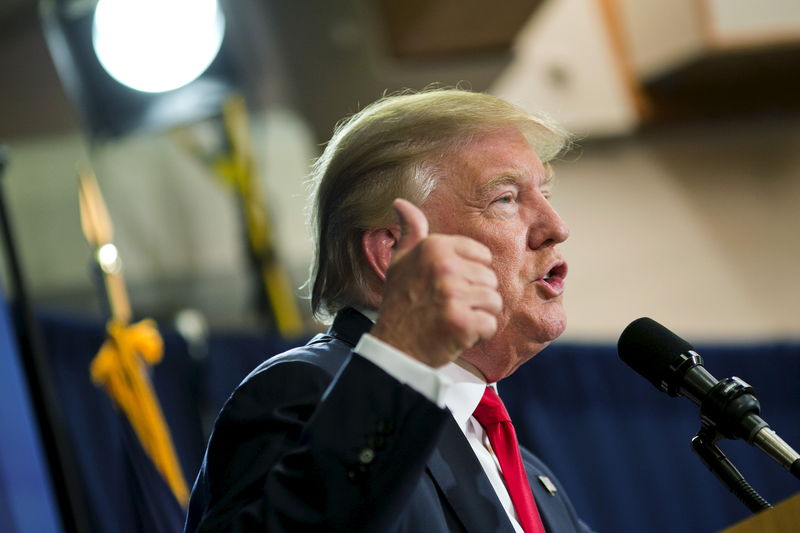(Bloomberg) -- Gold is failing in its traditional role as a haven in turbulent times, and a Deutsche fund manager has an explanation.
On Tuesday, as the deepening trade spat between the U.S. and China sent the S&P 500 index tumbling the most in a week, investors sought haven in the dollar, U.S. Treasuries and yen, overlooking gold. For Darwei Kung, a portfolio manager of the $3.3 billion Deutsche Enhanced Commodity Strategy Fund, the relatively higher transaction costs for bullion may be a contributing factor.
Abrupt changes in President Donald Trump’s policies, such as his alternating stances on North Korea, fuel speculation that his temperament toward tariffs on China could also change over the next few months, weakening the case for holding haven assets over a longer period, Kung said.
“People jump to gold if they really think that these geopolitical events will last,” Kung said in an interview at the Bloomberg headquarters in New York. Trump “has demonstrated already that he changes his mind very quickly,” he said.
That unpredictability “dulls the effect” on gold, he said. Take the case of yen. The bid-ask spread on gold is almost triple that of yen, making it more costly for investors to trade bullion. As of Tuesday, the yen had rallied 2.4 percent against the dollar this year, while the precious metal declined by almost the same amount.
Gold futures extended the losses on Wednesday, with the August contract dropping 0.3 percent to settle at $1,274.50 an ounce at 1:31 p.m. on the Comex in New York.
That effect has compounded losses for gold as other commodities have risen. One example is crude oil. West Texas Intermediate, the U.S. benchmark, has climbed almost 9 percent this year. As of Tuesday, the front-month contract was 5.1 percent more expensive than the contract expiring one year out, making it attractive for investors to keep rolling futures as they get closer to expiration. The case was opposite for gold, as shown in the chart below.
“Over time, energy will continue to rise, really driven by demand,” Kung said. With gold, “investor interest has been flat because it’s not reacting to any of the geopolitical events.”
Gold’s relative unattractiveness -- further exacerbated by rising interest rates -- can be seen in SPDR Gold Shares (HK:2840). The bullion assets held in the largest exchange-traded fund backed by the metal have fallen to the smallest in almost four months. Holdings in all such funds tracked by Bloomberg have dropped as of Tuesday by about 1.2 million ounces from a five-year high in May.
